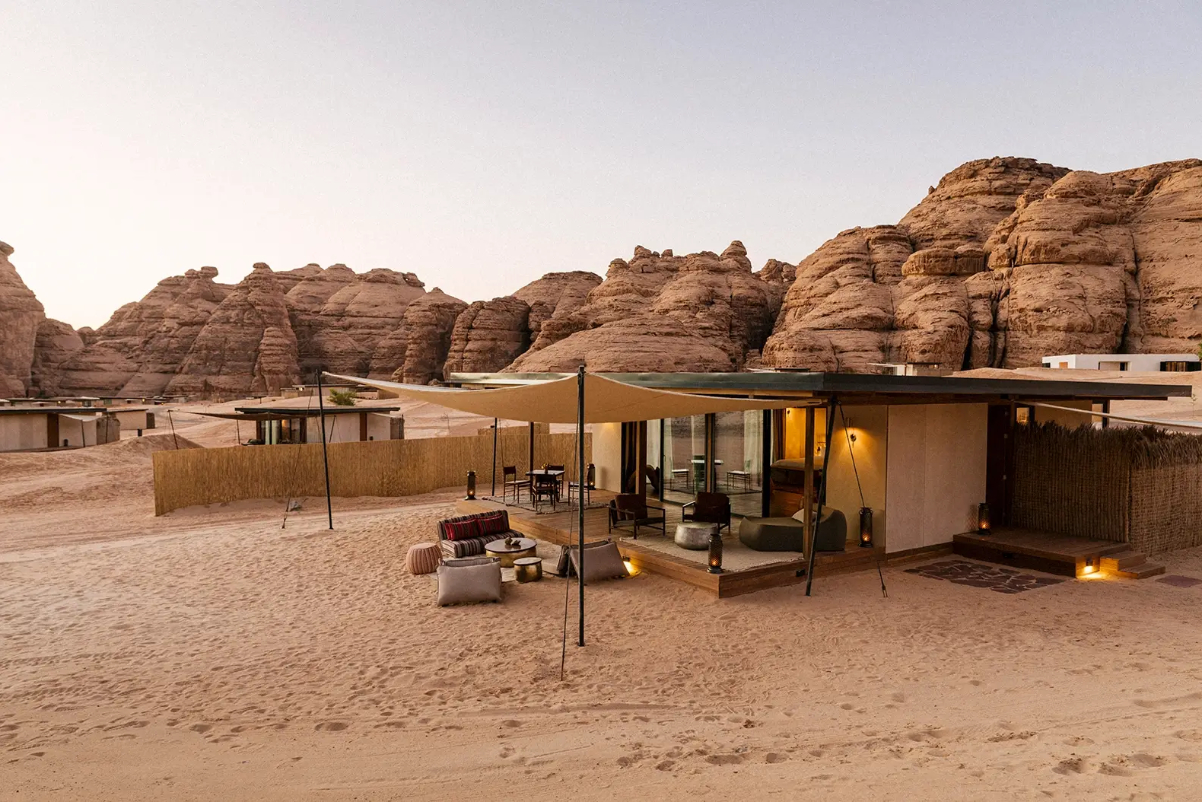Skift Take
If Saudi Arabia is serious about tourism, it will need to cater to a wide range of people and price points. What I want to see is room for a certain segment of the private sector: early-stage entrepreneurs and innovators building something from the ground up.

On Experience
Colin Nagy is a marketing strategist and writes on customer-centric experiences and innovation across the luxury sector, hotels, aviation, and beyond.
You can read all of his writing here.
My colleague Josh Corder recently reported how Saudi Arabia is thinking about luxury: The country’s tourism leadership acknowledged that 4- and 5-star hotels will account for at most 20% of their traffic.
This reality stands in stark contrast with the mega projects that make headlines like The Line and Neom. But the global press has focused too much on the glitz and glamor and missed the opportunities emerging in the region.
There is a white space here, and it’s incredibly exciting.
It will need a bold crop of new hospitality entrepreneurs building Saudi’s version of early Morgans Hotel Group or Bunkhouse: innovative manifestations of boutique hospitality that appeal to the global creative class while also infusing unique elements of Saudi/Middle Eastern hospitality, design, and aesthetics.
I see incredible creatives, artists, and designers who live and work in the Middle East, and how wide open the opportunity is for new, interesting boutique brands.
If Saudi Arabia is serious about tourism, it will need to cater to a wide range of people and price points. What is the Saudi-born Ace Hotel? Who are the entrepreneurs and thinkers that can dream this up?
Embrace Nuance
The problem now is actually too much capital. You can’t create something with a jewel-box, handmade appeal (which travelers really want) if you raise too much money and throw it at opulence and size.
The Saudi Public Investment Fund gets a lot of attention with its mega deals. This is to be expected. What I want to see is room for a certain segment of the private sector: early-stage entrepreneurs and innovators building something from the ground up.
There should be a moonshot project that can enable the next wave of young Saudi visionaries with an eye and an idea. It’s essential to find and cultivate homegrown talent and give it a world stage.
Diriyah Gate is a promising start: it is a development focused not on sci-fi futurism and hyper-luxury but on modernizing and contextualizing history and culture. It could continue to house this type of idea and these types of developments. For it to be successful, it needs to maintain a razor-sharp point of view and creative taste and not let the mission be watered down over time.
This new creative hospitality imperative should be a central topic in Saudi development conversations, not lost in the endless seas of capital, investment, and opportunism from Western investors. Otherwise, the incredibly unique nature of the Kingdom will be filled with rinse-and-repeat, hyper-scale projects that don’t speak to the soul of the place. That would be a wasted opportunity to build true resonance.
Get Skift Research
Skift Research products provide deep analysis, data, and expert research on the companies and trends that are shaping the future of travel.
Have a confidential tip for Skift? Get in touch
Tags: hotels, On Experience, saudi arabia, Travel Trends
Photo credit: A Habitas creation at Alula, a cultural tourism site in Saudi Arabia. Source: Habitas.
